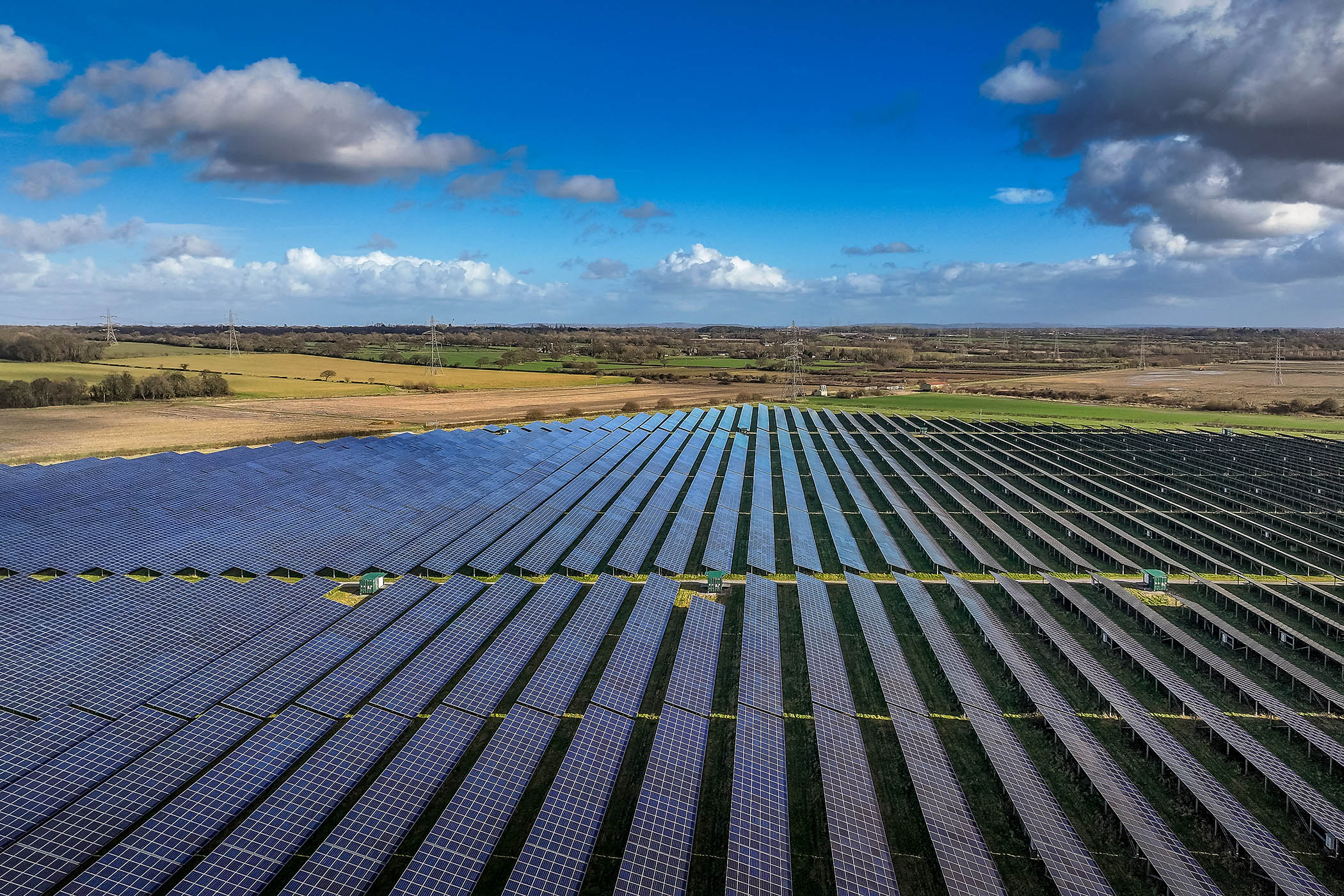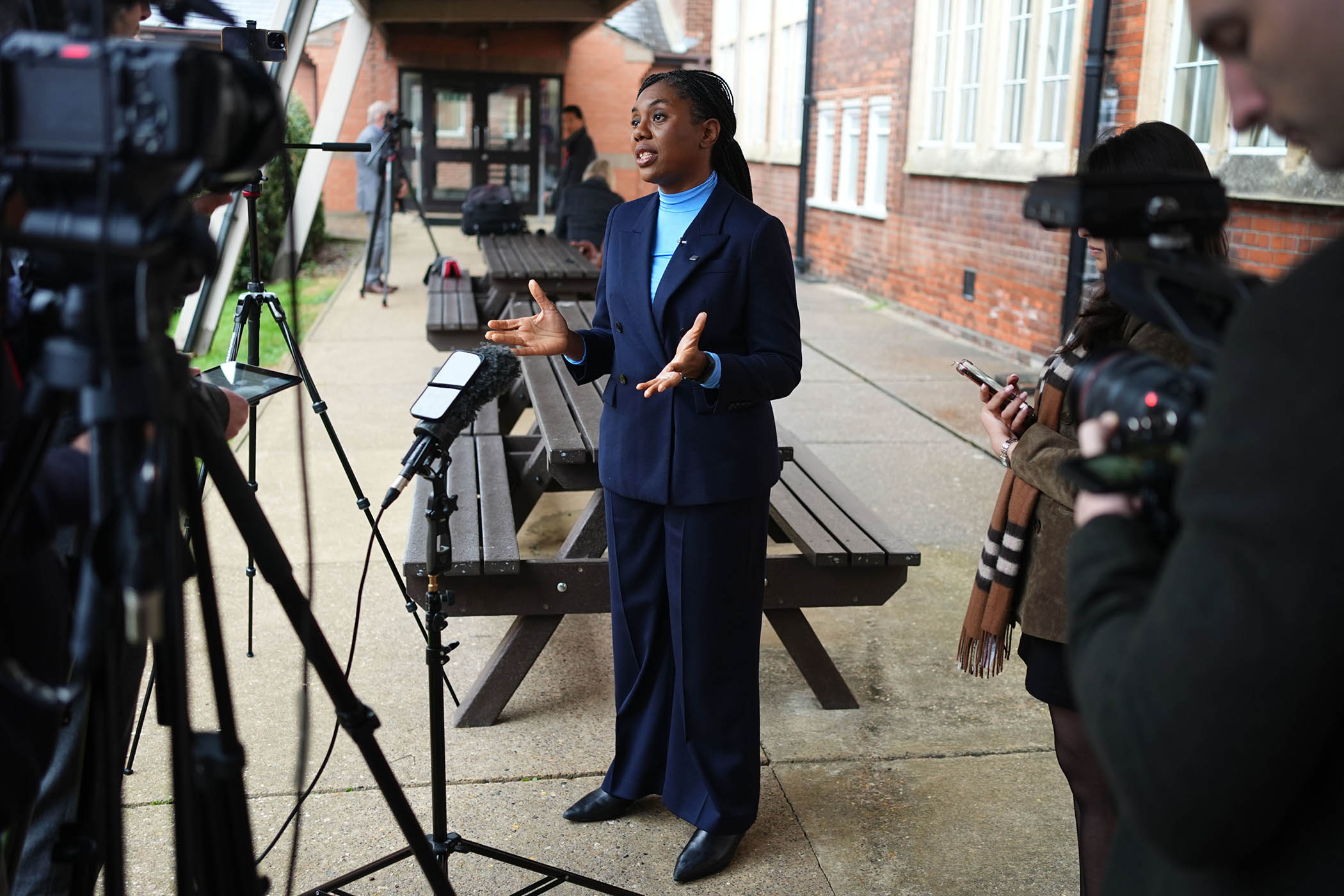I’ve backed both Labour and Conservative governments over the years. I don’t care about party colours. I care about ambition, for Britain and for the generations that follow us.
That’s how I built my businesses: by backing innovation, taking risks and believing that we could lead. It’s the same mindset we should bring to climate change. Ambition, not fear or finger pointing.
Climate change is the most serious long-term threat we face today. Its consequences are already visible, from record-breaking heatwaves and wildfires to rising sea levels, failed crops and displaced populations. These are not distant warnings. They are happening now. And unless we act, they will only get worse.
What worries me most is what this means for our children and grandchildren. The world they inherit will be shaped by the decisions we make today, or our failure to make them. We are heading towards a more unstable, more volatile planet where the cost of inaction will be counted not just in carbon, but in lost lives, lost livelihoods and lost futures.
We owe it to future generations to treat this threat with the seriousness it demands.
That’s why the latest comments from Kemi Badenoch on scrapping the Climate Change Act and net zero are so concerning. When she says “under my leadership, we will scrap those failed targets” and that “our priority now is growth [and] cheaper energy”, it isn’t bold or pragmatic. Growth and cheaper energy depend on clean power, not on walking away from it.
As someone with decades of business experience, I can tell you that scrapping the Climate Change Act isn’t bold or pragmatic. It’s failure dressed up as freedom.
When even the former PM Boris Johnson now says he “got carried away” on net zero, it’s another example of just how easily some have lost sight of the spirit of enterprise that makes Britain strong.
Climate change is not a leftwing project or a rightwing hoax. It is a global reality. And we should not be playing political games with something this important.
Yet despite the threat, there is also opportunity. This can be the defining economic race of the 21st century. It will decide where investment flows, where jobs are created, and which nations prosper.
Newsletters
Choose the newsletters you want to receive
View more
For information about how The Observer protects your data, read our Privacy Policy
The UK once led the way, showing that cutting emissions could go hand-in-hand with economic growth. But other nations are now leaving us behind. This isn’t about ideology. It’s about strategy. Either we compete in the industries of the future, or we get left behind.
Climate change is a global reality. And we should not be playing political games with something this important
Climate change is a global reality. And we should not be playing political games with something this important
So what’s holding us back? Not innovation. Not the public. It’s politics. My Caudwell Strong Britain report, which sets out how the UK can build a greener, more competitive and resilient science and technology base, found the same problem again and again: decisions made for the next headline, the next poll, the next focus group. Short-term politics is undermining long-term progress.
That’s despite the evidence. According to the CBI, Britain’s net zero economy grew by 10% last year and now generates £83bn a year, supporting almost a million jobs, more than twice as many as the entire UK food and drink manufacturing sector.
Trading the promise of votes now for certainty of our natural environment is a bad deal. It’s bad for business, for energy security, and for our place in the world.

Shotwick Solar Energy Park in Deeside, Wales is the largest solar farm in the UK.
The current debate is focused on whether we should stick to net zero at all. That’s the wrong question, so it’s little wonder it leads to the wrong answer. Instead, we should be asking where we want to be and then work backwards.
Suddenly, we’re breaking down the problem. Focusing on how we secure our environment incrementally. Faster, smarter, and in a way that builds national strength.
We need to back fast-growing British businesses so they can compete and thrive on the world stage. There are now 22,800 UK businesses working in net zero sectors, most of them small and medium-sized enterprises creating high-value jobs in hot spots such as Yorkshire and the West Midlands, according to the CBI.
We need to invest in skills so young people are ready for the jobs the green economy will create. We need to strip away the red tape blocking clean energy projects. And we need to keep strategic British companies in British hands, so the value stays here.
There is a serious debate to be had. But it is not the one encouraged by opportunists trying to win a bag full of votes at the next election. Instead of asking whether we believe in climate change, we should be asking how we turn this transition into the next great British success story.
The green economy is not a burden. It is a launchpad, for exports, jobs and resilience. But only if we treat it seriously. Britain still has every chance to lead. We have the talent. We have the businesses. We have the global reputation. But we won’t get there with short-term thinking and political distractions.
John Caudwell is a British entrepreneur, philanthropist and founder of Phones 4u.
Photographs by Jacob King/PA, Christopher Furlong/Getty Images


